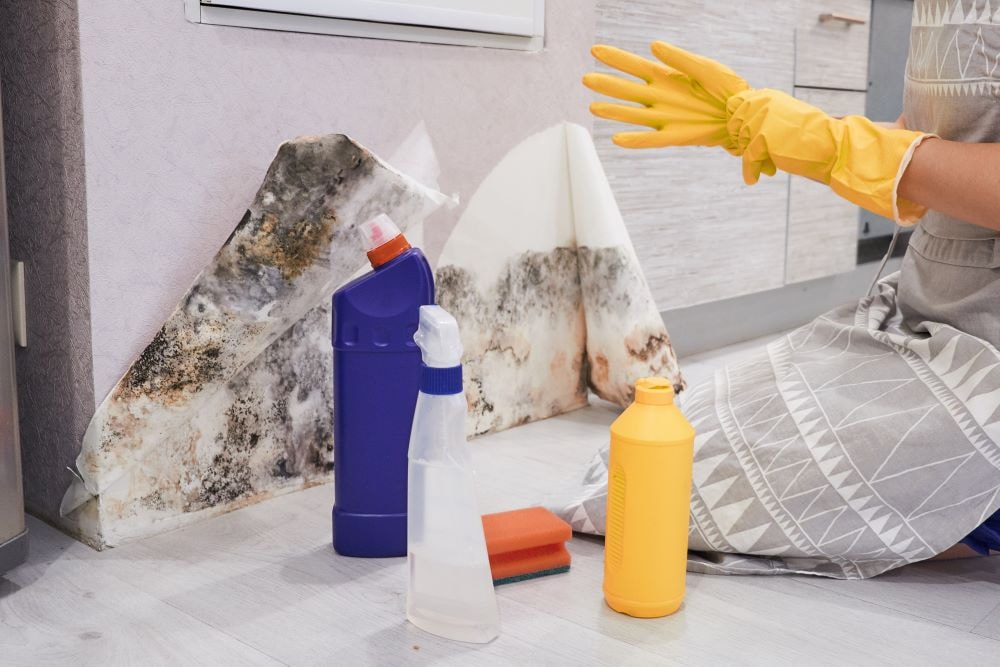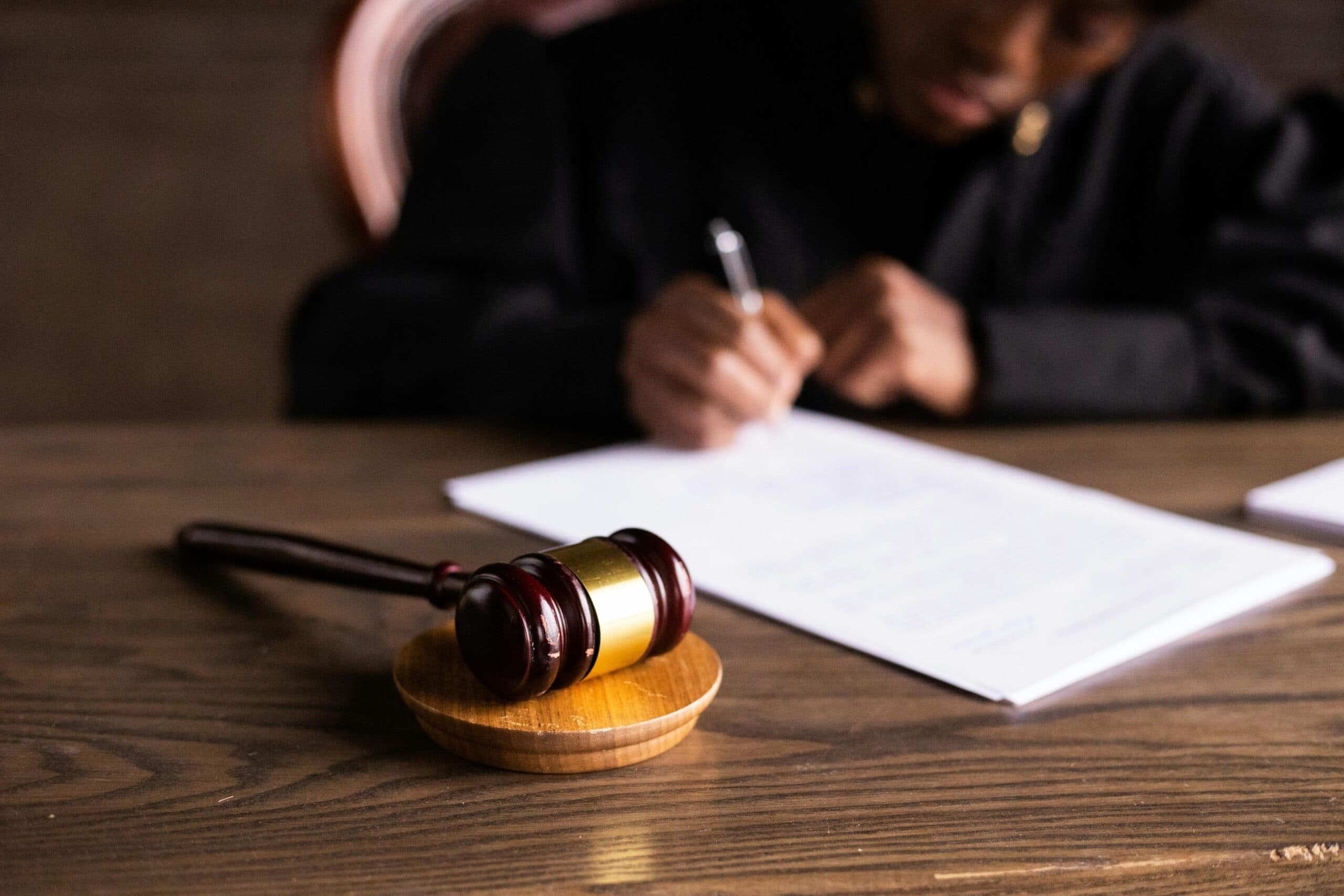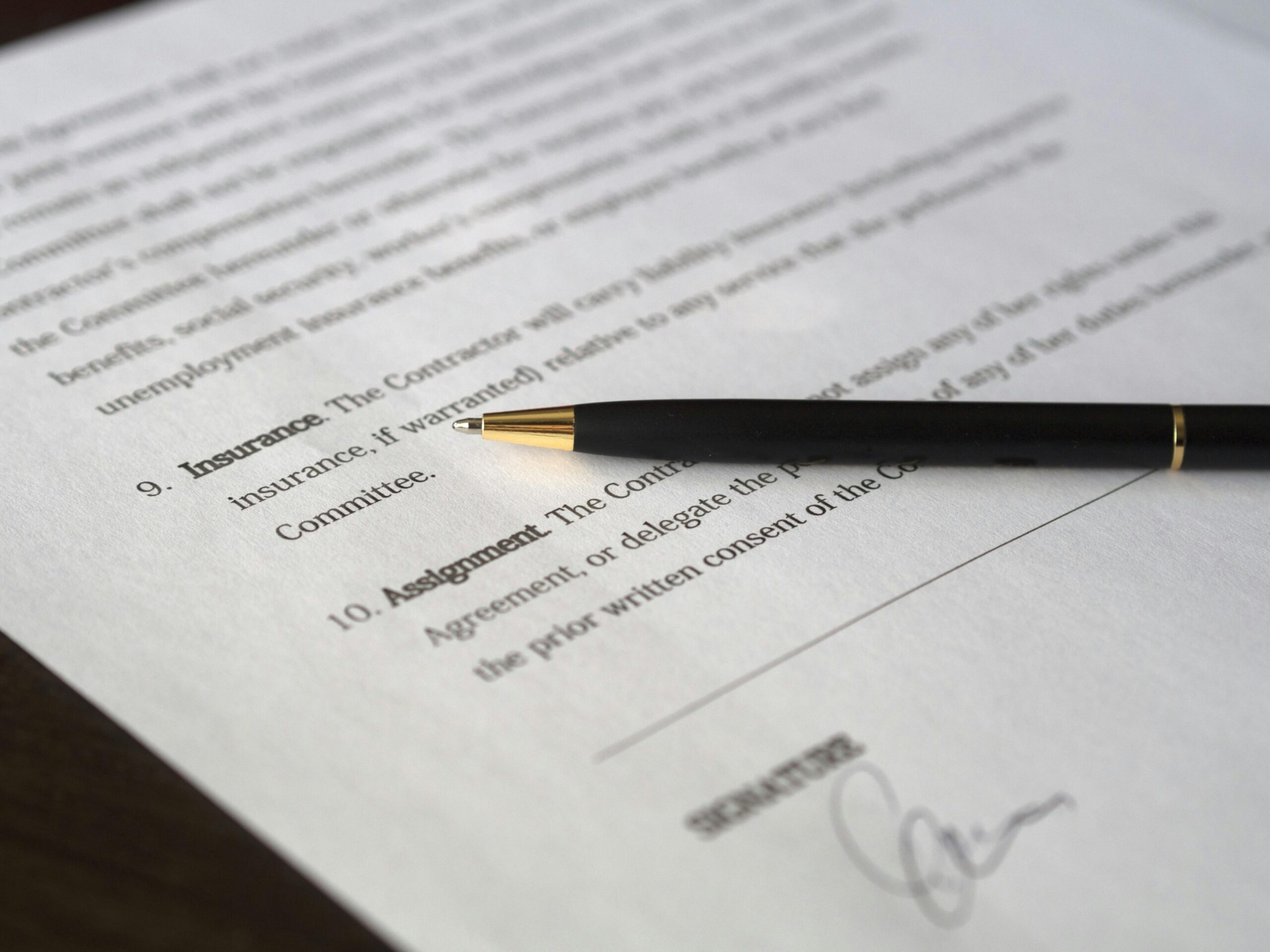
Mold can be a silent yet dangerous invader in rental properties, causing significant health issues and property damage. If you’re renting a property and discover mold, you might be wondering, “Can you sue a landlord for mold?”
The answer is yes, but there are specific circumstances and steps involved to cover mold damage. This comprehensive guide will help you understand everything you need to know about mold in rental properties, landlord responsibilities, and your legal rights as a tenant.
How Do You Even Know You Have Mold in Your Property?
Mold in the home might qualify for unsafe living conditions, leading to a lawsuit for compensation. However, detecting mold in your rental property can be tricky, especially since it often grows in hidden or less-visible areas. However, there are several signs that can indicate mold presence:
- Visible Mold Growth: This is the most obvious sign. Mold can appear as black, green, white, or even orange spots on walls, ceilings, floors, or other surfaces.
- Musty Odor: Mold often produces a distinct, musty smell, which can be a strong indicator of its presence.
- Water Damage: Look for signs of water damage or moisture, such as water stains, peeling paint, or damp surfaces, which can create an ideal environment for toxic mold growth.
- Health Issues: Experiencing health problems like respiratory issues, skin irritation, or allergic reactions can be a sign of toxic mold exposure.
What Causes Mold?
Mold requires three main conditions to thrive: moisture, warmth, and a food source. Common causes of mold growth in rental properties include:
- Water Leaks: Leaking pipes, roofs, or windows can introduce moisture, which fosters mold growth.
- High Humidity: Poor ventilation or high humidity levels, especially in bathrooms, kitchens, and basements, can promote mold development.
- Flooding: Water from flooding can seep into walls and floors, creating perfect conditions for mold.
Is Mold Dangerous?
Yes, mold can be dangerous, particularly certain types like black mold (Stachybotrys chartarum), which is known for its toxicity. Mold exposure can lead to various health problems, especially in individuals with compromised immune systems, asthma, or allergies.
Health Problems Caused by Mold
Mold exposure can result in numerous health issues, including:
- Respiratory Problems: Coughing, wheezing, and trouble breathing.
- Allergic Reactions: Sneezing, nasal congestion, and skin irritation.
- Asthma Attacks: Mold can trigger asthma symptoms and attacks.
- Serious Health Risks: Prolonged exposure can lead to more severe health issues like memory loss, neurological symptoms, and respiratory infections.

How Do You Know You Have a Mold Infection?
If you or your family members experience persistent health issues that coincide with visible mold or musty odors in your home, it’s a sign of potential mold exposure. Consulting with a healthcare provider and having your property inspected by a mold specialist can confirm the presence of mold and its impact on your health.
Rules Regarding Mold in Rental Properties
Nevada law mandates that landlords maintain habitable living conditions for tenants, which includes addressing mold problems. Specific regulations and responsibilities may vary, but generally, landlords must:
- Fix Water Leaks Promptly: Address any water issues that could lead to mold growth.
- Perform Regular Inspections: Conduct periodic inspections to identify and mitigate mold risks.
- Mold Remediation: Take necessary steps for mold removal and remediation.
What Do I Do If I Find Mold in My Rental House?
If you discover mold in your rental property, follow these steps:
- Document the Mold: Take photos and videos of the visible mold and any water damage.
- Report to the Landlord: Provide written notice to your landlord immediately, detailing the mold problem and requesting remediation.
- Keep Records: Maintain a record of all communications with your landlord and any actions taken.
- Seek Professional Help: Consider hiring a mold inspection service to assess the extent of the problem.

Landlord Liability for Mold
Landlords are generally responsible for addressing mold issues resulting from structural problems, water leaks, or inadequate maintenance. Failure to do so can make them liable for damages related to mold exposure.
Can You Sue a Landlord for Mold?
Yes, you can sue a landlord for mold if they neglect their responsibilities. To have a successful case, you must prove that the landlord’s negligence directly caused the mold problem and any resulting damages.
When Can You Sue a Landlord for Mold?
You can sue your landlord for mold when:
- The Mold Problem is Severe: The mold poses a serious health risk or has caused significant property damage.
- Landlord Neglected Their Duties: The landlord failed to address the mold issue within a reasonable timeframe after being notified.
- Health and Property Damages: You or your family suffered health problems or property damage due to mold exposure.
How Can You Sue a Landlord for Mold?
To sue your landlord for mold, follow these steps:
- Gather Evidence: Collect all documentation, including photos, videos, medical records, and communication records with your landlord.
- Consult an Experienced Attorney: Seek legal advice from an attorney experienced in mold-related cases.
- File a Lawsuit: Your attorney will help you file a personal injury lawsuit or property damage claim against your landlord.
- Seek Compensation: Demand compensation for medical expenses, mold damage, lost wages, and other related costs.
How Much is a Mold Lawsuit Worth?
The value of a mold lawsuit can vary widely depending on the severity of the mold problem, the extent of the health issues, and the damage incurred. Compensation may cover:
- Medical Expenses: Current and future medical costs for treating mold-related health problems.
- Property Damage: Costs to repair or replace damaged personal property.
- Lost Wages: Compensation for income lost due to health issues or relocation.
- Pain and Suffering: Damages for the physical and emotional distress caused by mold exposure.
What are the Damages I Can Recover?
Damages you can recover in a mold lawsuit may include:
- Medical Expenses: For treatment of mold-related health issues.
- Property Damage: To repair or replace damaged belongings.
- Lost Wages: Compensation for time off work due to illness.
- Pain and Suffering: For physical and emotional distress.
- Legal Fees: Costs associated with pursuing legal action.

Potential Consequences Faced by Landlords for Mold
Landlords who fail to address mold issues can face serious consequences, including:
- Legal Action: Lawsuits from tenants seeking compensation for health and property damages.
- Fines and Penalties: Regulatory fines for failing to maintain habitable conditions.
- Loss of Tenants: Tenants may withhold rent or terminate their lease agreements.
Can Mold Be Removed?
Yes, mold can be removed through proper mold remediation processes. This involves:
- Identifying the Source: Addressing the underlying cause of moisture to prevent future mold growth.
- Cleaning and Removal: Using mold killing agents to clean and remove visible mold.
- Repair and Restoration: Fixing water damage and restoring affected areas.
Landlord Responsibilities for Mold Removal
Landlords are responsible for ensuring that their rental properties are safe and habitable. This includes:
- Prompt Repairs: Fixing water leaks and addressing moisture issues quickly.
- Professional Remediation: Hiring professionals for thorough mold remediation.
- Regular Inspections: Conducting routine inspections to prevent mold growth.
How an Attorney Can Help You in a Mold Case
When dealing with mold in a rental property, an attorney can be an invaluable ally in navigating the legal complexities and ensuring your rights are protected. Here’s how an experienced attorney can assist you:
- Legal Advice and Guidance: Attorneys clarify your tenant rights and assess the viability of your case based on mold exposure and damages.
- Gathering Evidence: They help collect essential documentation like photos, medical records, and expert testimony to support your claims effectively.
- Filing Legal Documents: Attorneys handle the preparation and filing of necessary paper work, ensuring compliance with legal procedures and deadlines.
- Negotiating with the Landlord: They engage in settlement discussions and mediation, aiming to resolve disputes amicably without court involvement.
- Representing You in Court: Attorneys advocate on your behalf in litigation, presenting your case persuasively to secure favorable outcomes and compensation.
- Calculating Damages: They accurately assess damages, including medical costs, property damage, and future expenses related to mold exposure.
- Ensuring Compliance: Attorneys ensure landlords adhere to court orders or settlements, particularly regarding mold remediation and compensation payments.
- Handling Retaliation: They protect against landlord retaliation for reporting mold issues, safeguarding your rights throughout the legal process.

Final Thoughts
Mold in rental properties is a serious issue that can lead to health problems and property damage. If you discover mold in your rental home, it’s crucial to act quickly, document the problem, and notify your landlord.
If your landlord neglects their responsibilities, you may have the right to sue for damages. Consulting an experienced attorney can help you navigate the legal process and seek the compensation you deserve.
Remember, your health and safety should always be a top priority, and addressing mold issues promptly can prevent more severe consequences down the line.
Protect Your Health and Rights with BLG
If you’re dealing with a mold problem in your rental property, don’t wait until it gets worse. Your health and safety are paramount, and you have the right to live in a habitable environment.
At BLG, our experienced attorneys are here to help you understand your legal options and fight for the compensation you deserve.
Contact us today for a free consultation.
FAQs
Can you sue if you get sick from mold?
Yes, you can sue if you get sick from mold exposure, especially if you can prove that the landlord or property owner was negligent in maintaining the property and addressing the mold problem.
What are my rights as a renter with mold?
As a renter, you have the right to live in a safe and habitable environment. If mold is present, you should report it to your landlord. Landlords are typically responsible for addressing and fixing mold issues.
Can I withhold rent for mold?
In many jurisdictions, you may be able to withhold rent if the landlord fails to address a mold problem that makes the property uninhabitable. However, it is important to follow local laws and proper procedures, such as providing written notice and allowing reasonable time for repairs.
What are the symptoms of mold exposure?
Symptoms of mold exposure can include respiratory issues (such as coughing, wheezing, and shortness of breath), nasal congestion, eye irritation, skin rashes, headaches, and in severe cases, more serious health problems like infections or toxic reactions.




